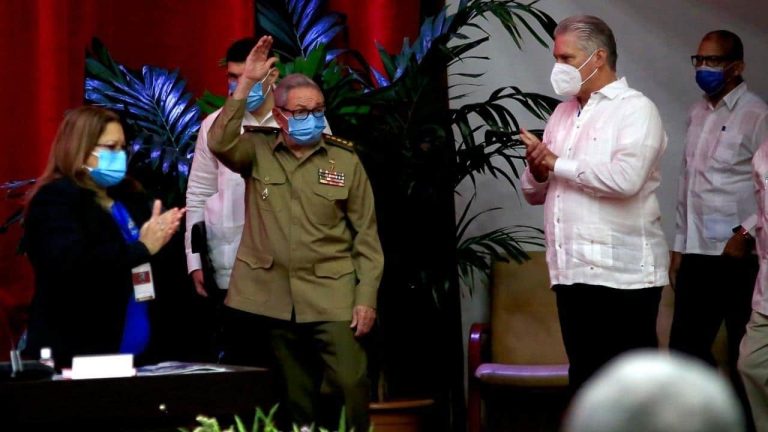24 de abril 2021

The Return of the Military

PUBLICIDAD 1M
PUBLICIDAD 4D
PUBLICIDAD 5D
Cuba after Raul Castro continues to be determined by short-term thought. President Diaz Canel himself said there is no time for the long-term.

Since Raul Castro replaced his brother Fidel
Since Raul Castro replaced his brother Fidel, in the top leadership of the country in 2006, he set out to create the conditions for a generational renewal of command in Cuba, without altering the institutional foundations of the system. It could be said that his objective has just been fully achieved with the handover of the top authority of the Communist Party to President Miguel Díaz Canel.
Not only in the leadership of the party, but also the composition of the Political Bureau, the highest circle of ideological power on the island, has been renewed generationally. No member of the historical generation has remained in the Political Bureau and the new members of that institution clearly reflect the rise of leaders born after the 1959 Revolution to the main administrative and governmental positions of the State.
Like all the congresses of single communist parties, from the USSR and the real socialism of Eastern Europe to China, Viet Nam and North Korea today, this one served to shuffle the elites on the island. Some of the top managers of the new economic policy, like Marino Murillo, have been left out, and a good part of the ideological and media team has been purged, after Raul Castro himself criticized the official media as “triumphalist, strident and superficial.”
But the renewal and circulation of elites in Cuba is accompanied by a declared ideological and political continuity. The economic reform continues to have absurd limits, which prevent it from moving towards opening small and medium-size companies, making trade more flexible and diversifying foreign investment.
The conceptualization of “socialist,” under a precarious mixed economy scheme, continues to be discretionary and incoherent. Certain direct foreign investment is part of “socialism,” but the participation of private entities in commerce has already crossed the line and represents the introduction of “capitalism” on the island.
In terms of human rights, no improvement should be expected either. Castro said that the State will support gender policies, the fight against racism and the recognition of the rights of LGTBI communities, but also warned that these demands are an objective of the “enemy” to “subvert” the system.
With that warning, he did nothing more than encourage the powerful conservative currents of the official Cuban ideology, which feel threatened by the new human rights agendas of the 21st century.
Post - Raul Castro Cuba continues to be determined by immediacy and short-term thinking. Diaz Canel himself said, before the congress, that “in Cuba there is no time for the long-term.” Ultimately, this immediacy facilitates ambiguity and uncertainty in the face of crucial issues of economic and international policy, which include relations with the United States, Latin America and Europe, and what is more serious, regarding the lack of democracy.
*This article was originally published in “La Razón.”
Archivado como:
PUBLICIDAD 3M
Historiador y ensayista cubano, residente en México. Es licenciado en Filosofía y doctor en Historia. Profesor e investigador del Centro de Investigación y Docencia Económicas (CIDE) de la Ciudad de México y profesor visitante en las universidades de Princeton, Yale, Columbia y Austin. Es autor de más de veinte libros sobre América Latina, México y Cuba.
PUBLICIDAD 3D